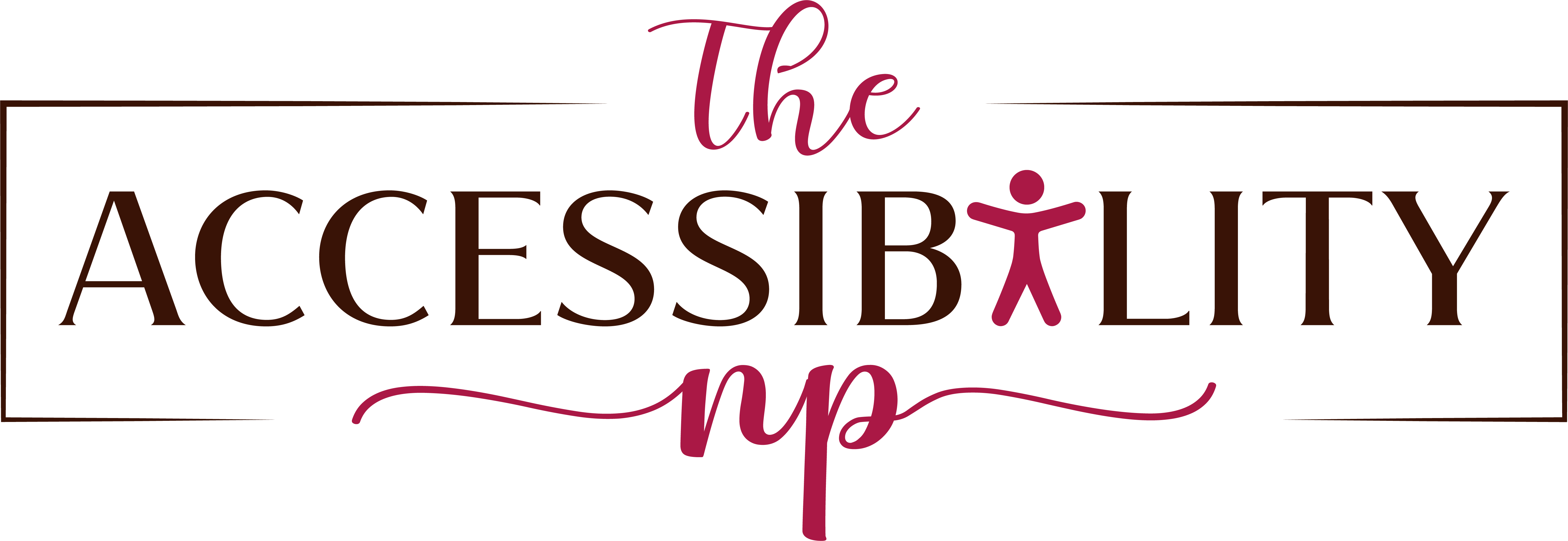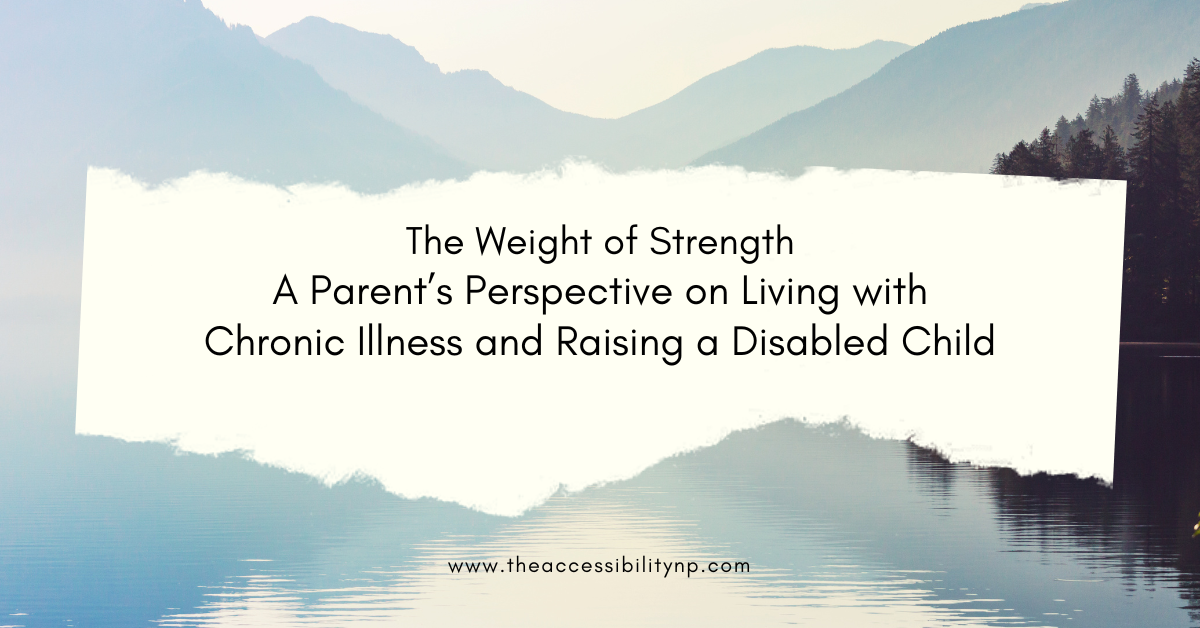I can’t tell you how many times I’ve heard, “You’re so strong.” It’s usually well-meaning and often comes from people who care. But as someone managing Crohn’s disease and raising a disabled child, that phrase tends to land a bit awkwardly. It’s not that I don’t appreciate the sentiment; I understand that people want to offer encouragement. But when you’re deep in the trenches of chronic illness and caregiving, ‘strength’ feels like both an expectation and a misunderstanding.
The Reality Behind ‘Strength’
Let me paint a picture of what life looks like for me. I was diagnosed with Crohn’s disease during my freshman year of college. I was young, on my own for the first time, and suddenly faced with a medical condition I hadn’t anticipated. Crohn’s can be unpredictable, painful, and exhausting. Now, as a parent to a disabled child, that unpredictability has become part of both my and my daughter’s daily routines. Medical appointments, therapies, medication schedules, dietary restrictions, and sleepless nights all coexist alongside the barriers that come with parenting and living with a chronic illness.
People often assume that continuing to manage all of this makes me strong. But the truth is, there’s no alternative. I can’t opt out. Strength, as I’ve come to know it, isn’t always about bravery or resilience; it’s about getting up every day and doing what needs to be done. The perception of strength often ignores the reality that there is no choice but to keep going. I don’t see it as strength—I see it as necessity.
Coping vs. Strength
To be honest, I rarely feel strong. I often feel like I’m simply coping. I get through each day, not out of an overwhelming inner strength, but because life demands it. My daughter’s needs don’t pause because I’m fatigued, and my Crohn’s symptoms don’t ease up because I’m dealing with another crisis.
Survival mode is different from choosing to be strong. Strength suggests a sense of control and determination, while coping often feels like holding on for dear life. There are days when I’m exhausted beyond words and wondering how I’ll manage another medical appointment, another night of interrupted sleep, or even just the energy to make dinner. On those days, I’m not strong—I’m surviving.
When I’m told I’m strong, I often want to respond, “I’m not sure you’d say that if you saw me cry in the bathroom at 2 AM.” It’s not that I’m offended, but the phrase can feel dismissive. It makes it seem like I have a choice in being resilient, rather than facing the reality that giving up just isn’t an option.
The Emotional Toll of ‘Strength’
The label of strength can sometimes feel like a burden, making it harder to show vulnerability or to admit that I need help. How can I reach out to others when I’m constantly reminded of how ‘strong’ I am? The more people tell me I’m strong, the more I feel like I have to live up to it.
There’s also a layer of misunderstanding that comes with being labeled as strong. It implies that I’m okay, that I’m handling things well, or that I’ve found some sort of peace with my circumstances. In truth, there are days when I am far from okay. There are moments when the weight of everything feels unbearable, and yet I still have to push forward.
The ‘strong’ label makes it difficult to express the mental and emotional toll of chronic illness and caregiving. The emotional fatigue can sometimes outweigh the physical pain. It’s not just about managing Crohn’s or raising my daughter; it’s also about the loneliness, the fear, and the overwhelming sense of responsibility that I feel every single day. When you’re constantly seen as strong, there’s less room to be seen as human.
A Different Kind of Acknowledgment
So, what could be more meaningful than telling someone they’re strong? Sometimes, all it takes is acknowledgment without the label. I don’t necessarily need to be told I’m brave or powerful—I just need someone to see me.
Simple phrases like “I see you,” “That must be really hard,” or “I’m here for you” can go a long way. When someone acknowledges the barriers and the effort without putting a label on it, it feels like genuine support. It’s validating to hear that someone recognizes how tough it is, even if they can’t fully understand what I’m experiencing. It reminds me that I’m not alone in this, that someone sees the struggle beyond the facade of strength.
There’s also a need for people to recognize that I might need help, even if I don’t ask for it directly. Often, people assume that because I appear strong, I don’t need assistance. But that’s far from true. Offering help or just being present is often more supportive than any amount of praise about my strength.
Reframing ‘Strength’ for Others
The way society frames ‘strength’ in relation to disabled parents or people with chronic illnesses can be problematic. It can create unrealistic expectations, pressure to uphold a certain image, and an inability to be open about struggles. When people are seen only through the lens of their ‘strength,’ their humanity can be lost in the process.
I believe it’s time to shift the narrative. Let’s talk about endurance, perseverance, and effort without labeling it as strength. Let’s acknowledge that many of us are simply coping, doing the best we can with the cards we’ve been dealt. When we strip away the label of strength, we allow room for vulnerability, honesty, and authentic support.
For those who want to support a friend, family member, or colleague navigating chronic illness or caregiving, consider changing your language. Acknowledge the barriers without attaching the weight of strength to them. Say things like, “I can’t imagine how hard that must be” or “I see all the effort you’re putting in.” These phrases offer validation without expectations and open the door for real conversations about how someone is truly feeling.
Final Thoughts
So, when you see me managing life with Crohn’s and caring for my daughter, remember that it’s not always about being strong. It’s about doing what needs to be done, sometimes with gritted teeth, often with silent tears, and always with a lot of love.
It’s okay to be vulnerable, to admit the weight of it all, and to ask for support when needed. Maybe that’s the real strength: allowing myself to be seen as human. Because, at the end of the day, strength isn’t always a choice—it’s just how I get through each day.
Until next Monday, stay connected and keep advocating!

